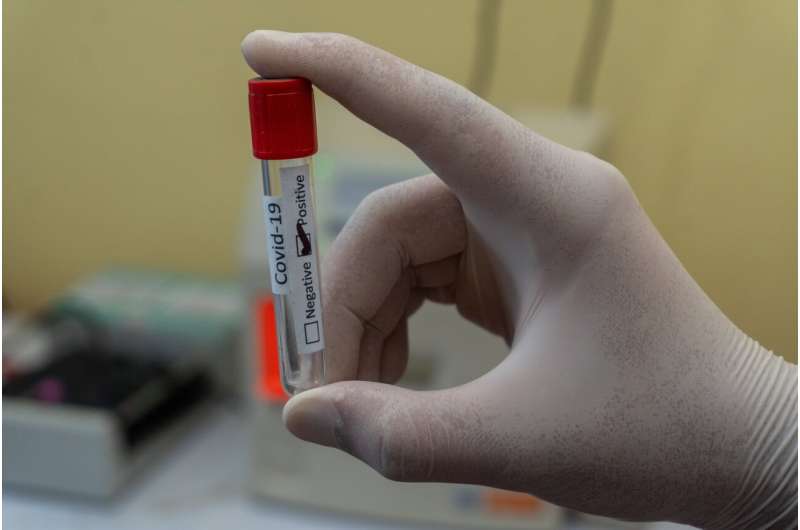Credit: Unsplash/CC0 Public Domain
University of California, Irvine researchers have developed a COVID-19 test that detects and identifies specific SARS-CoV-2 variants with 100% accuracy. In a study, the RNA-encoded viral nucleic acid analytic reporter correctly determined the Alpha, Gamma, Delta, Epsilon and Omicron genetic mutations in nasopharyngeal clinical samples. This ability could enable healthcare providers to make personalized treatment decisions for improved patient care.
Recently published online in the Journal of the American Chemical Society, a paper on the research describes the design and validation of the Revealr SARS-CoV-2 genotyping system.
"The COVID-19 pandemic has created an urgent need for individualized diagnostic tools that can recognize the presence of the virus as well as the particular strain. Identifying and triaging patients infected with variants that increase viral transmissibility and reduce vaccine protection is critical to controlling spread of the disease," said corresponding author John Chaput, UCI professor of pharmaceutical sciences. "Revealr goes beyond simple COVID detection methods, such as the commonly used antigen kit, to identify the precise SARS-CoV-2 strain infecting a patient."
The team analyzed 34 clinical samples collected in early, mid- and late 2021 at the UCI Medical Center from patients experiencing COVID-19 symptoms. The RNA was isolated from the nasopharyngeal swabs, and the correct SARS-CoV-2 variant was identified in every case.
"Although Revealr was developed as a COVID detection assay, the next step is to expand to other respiratory tract infections that share symptoms with COVID-19, like influenza," Chaput said. "The ability to distinguish single-point mutation in a DNA or RNA genetic sequence makes it ideally suited for any genotyping, including cancer. Beyond human health, Revealr could find use in forensic or agricultural applications that currently rely on DNA sequencing."
The study team included Chaput lab member Kefan Yang, a graduate student in chemical and biomolecular engineering; Chaput lab member Daniel Schuder, a graduate student in molecular biology and biochemistry; and Arlene Ngor, who manages the Chaput lab.
The researchers have filed a patent application on Revealr genotyping.
More information: Kefan Yang et al, REVEALR-Based Genotyping of SARS-CoV-2 Variants of Concern in Clinical Samples, Journal of the American Chemical Society (2022). DOI: 10.1021/jacs.2c03420
Journal information: Journal of the American Chemical Society
Provided by University of California, Irvine
























